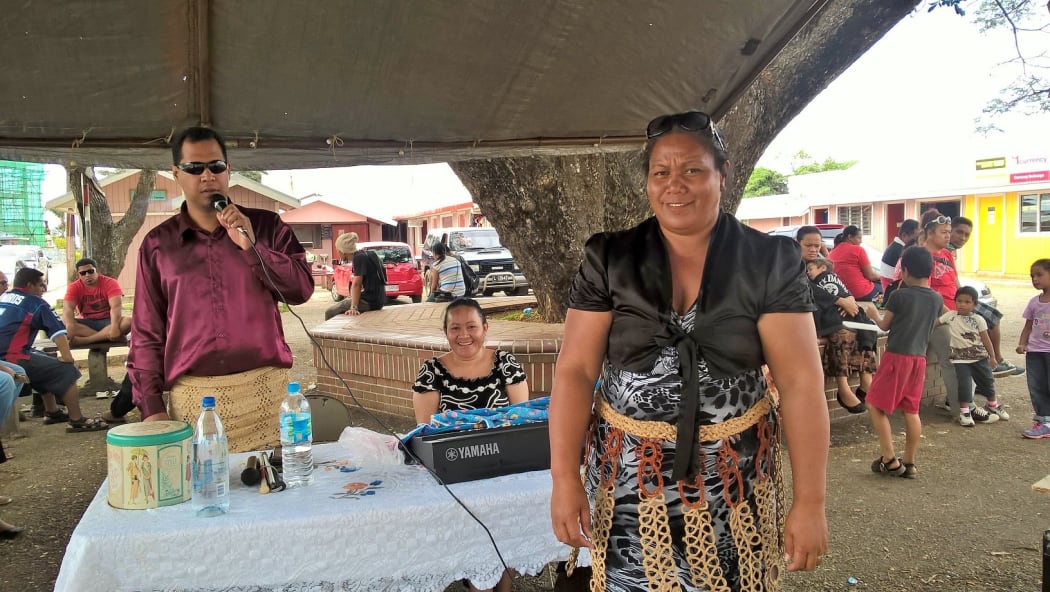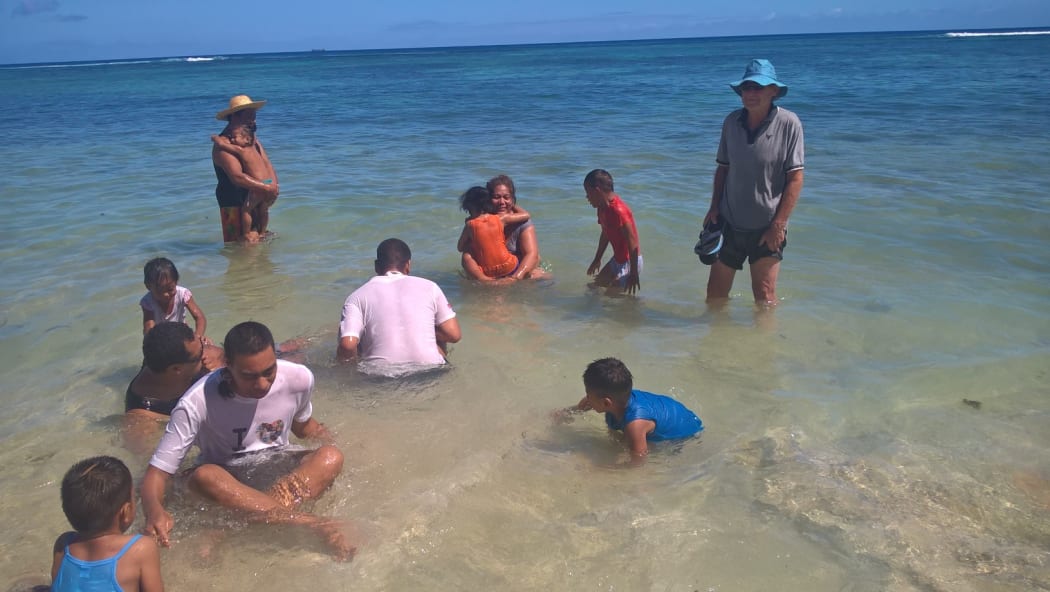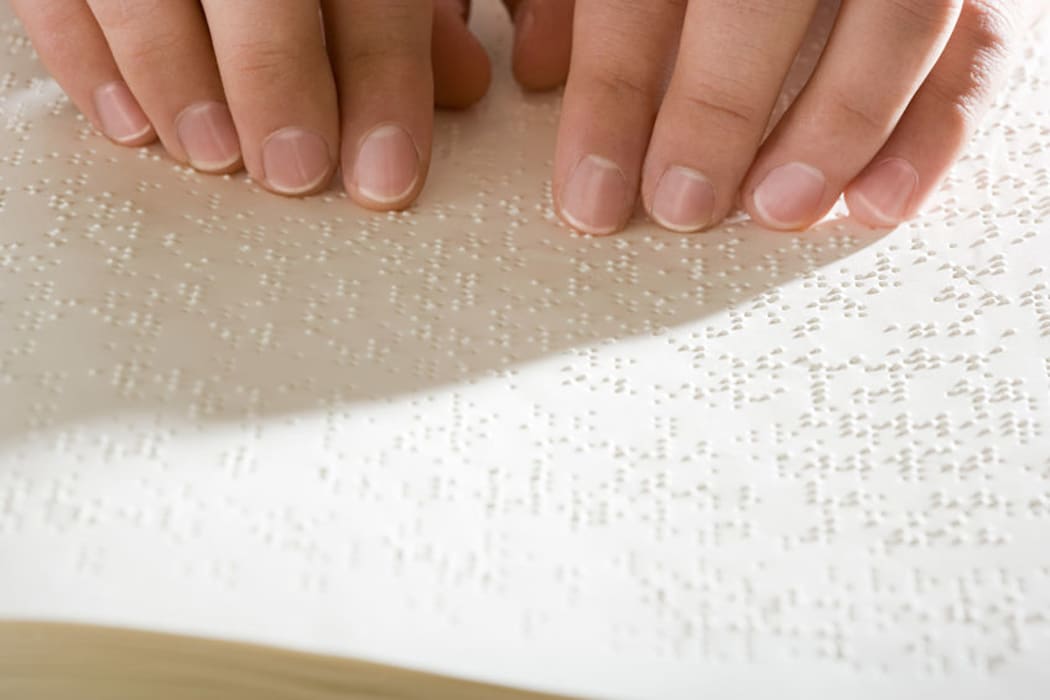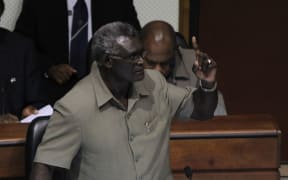Tonga's justice system has opened up public discussion this week on ratifying the Convention of Rights of Persons with Disabilities.
The country is celebrating its annual 'Law Week' and the Attorney General's Office will inform the public of the rights provided in the Convention and how it can be applied in Tonga.
Many persons with disabilities in Tonga, like 31-year-old Ofeina Leka, are hopeful that the general public will support ratifying the Convention.

Ofeina Leka and his wife Aki at a fundraising event for the National Visual Impairment Organisation. Photo: Margaret Swift
He was born healthy, but an accident at the age of 11 left him totally blind and felt excluded from the education system and his community particularly when no school in the country would accept him.
"So my parents sent me over to Fiji, where there's the School Society for the Blind and I studied there," he said
"[I went] up to a stage. My parents can't afford to pay for my school. So I came back to Tonga."
Eager to complete his education Mr Leka said he approached one of the universities in Tonga and asked if they would accept him.
"I went to the principal and I spoke with him and he said 'Let me think about it.' I went there for the second time, third time - maybe he was fed up of seeing me up here in his office and he said, 'Ok, you can come."
Using a tape recorder, a screen reader, a laptop and braille he found his own way of learning at University and after four years of studying he graduated with a degree in business administration.
Mr Leka lives independently, including cooking and cleaning for himself, and is helping other young blind children learn how to do the same though Tonga's National Visual Impairment organisation which he founded.
"I never forget about how hard, how difficult that I came through," he said.
"So I have that vision, I should establish the Blind Association here in Tonga to gather the people with visual impairment so we can make a change."

Carer John Swift takes a group out for a day at the beach. Many had never been in the sea before. Photo: Margaret Swift
Mr Leka said barely one percent of people living with a disability in Tonga have access to education and they make up the largest proportion of people living in poverty in Tonga.
"That's how important [it is] that we need the convention to be ratified because people with disabilities have the right to be educated, have a rights to be employed, have a right to have their own family, have a right to make a choice."
Tiulepi Peleketi, the Coordinator for the Tonga Red Cross Disability programme, agrees.
"It is very very important because the people here in Tonga need to be trained to change their attitudes towards disabilities," she said
"Because a lot of people say words, you know, using names to the people here and that really puts them down."
Last week she attended a conference in Nuku'alofa to discuss the convention - the first of eight phases needed before its ratification.
Ms Peleketi said persons with a disability have mostly been supported by non-governmental organisations such as the Tonga Red Cross and Mr Leka's Blind Association, with little government assistance.

Ofeina Leka said barely one percent of people living with a disability in Tonga have access to education. Photo: 123RF
But she said issues like accessiblity for persons of disability are slowly improving and pointed out that the country's first marked disabled toilet had recently been built inside the airport.
"Tonga is starting to improve that. You know, making ramps in some places, in the shop, and even in the parking lots - they start to sign out things for the disabilities."
"I'm very glad that the government has moved on that," she said.
NGOs like Tonga's National Visual Impairment Organisation are yet to receive government support and mainly rely on fundraising events and private donations.
"Sometimes we donate money from our own - we take money from our pocket and use for our association."
Mr Leka said he hopes this week's public discussions will raise awareness and more government support for the ratification of the Convention.




